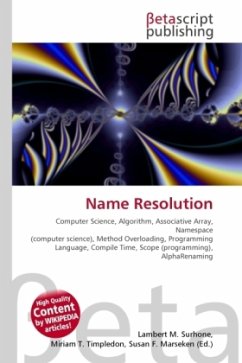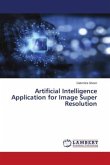High Quality Content by WIKIPEDIA articles! Expressions in computer languages can contain identifiers. The semantics of such expressions depend on the entities that the identifiers refer to. The algorithm that determines what an identifier in a given context refers to is part of the language definition. The complexity of these algorithms is influenced by the sophistication of the language. For example, name resolution in assembly language usually involves only a single simple table lookup, while name resolution in C++ is extremely complicated as it involves: namespaces, which make it possible for an identifier to have different meanings depending on its associated namespace; scopes, which make it possible for an identifier to have different meanings at different scope levels, and which involves various scope overriding and hiding rules. At the most basic level name resolution usually attempts to find the binding in the smallest enclosing scope, so that for example local variablessupersede global variables; this is called shadowing.
Bitte wählen Sie Ihr Anliegen aus.
Rechnungen
Retourenschein anfordern
Bestellstatus
Storno








